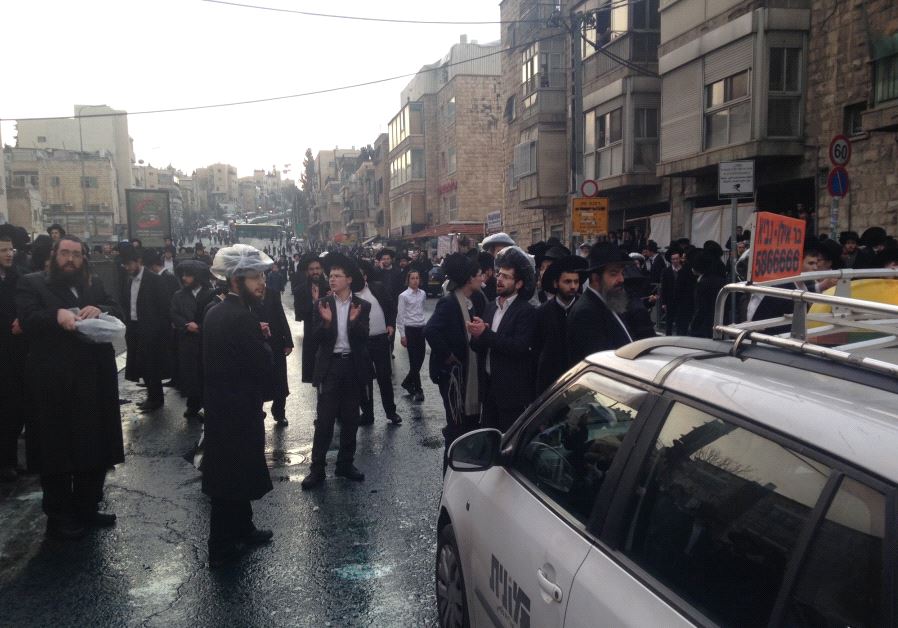Haredi protesters riot for third night in a row, 31 arrested
In Jerusalem, hundreds of protesters blocked the Bar Ilan and Shmuel Hanavi junction, a major traffic artery, causing significant traffic jams.
 Haredi protest in Jerusalem(photo credit: JEREMY SHARON)Updated:
Haredi protest in Jerusalem(photo credit: JEREMY SHARON)Updated: